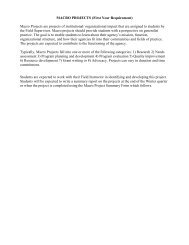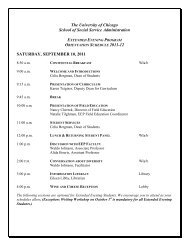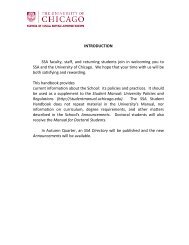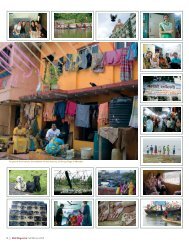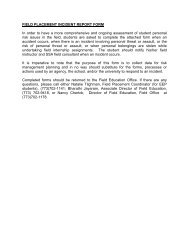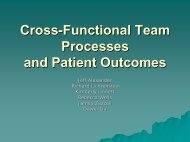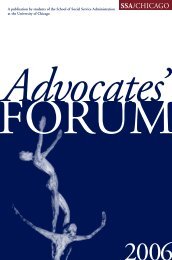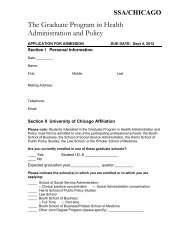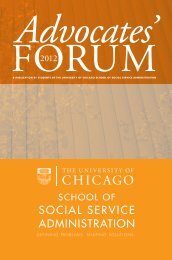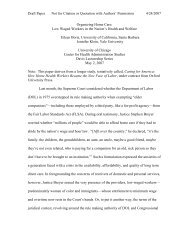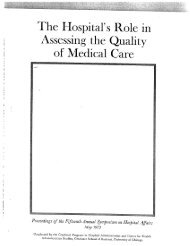2004 - School of Social Service Administration - University of Chicago
2004 - School of Social Service Administration - University of Chicago
2004 - School of Social Service Administration - University of Chicago
Create successful ePaper yourself
Turn your PDF publications into a flip-book with our unique Google optimized e-Paper software.
DISSERTATION ABSTRACT<br />
hierarchically and in compensation. The findings also suggest, however, that<br />
ILM-based opportunities are not always positively associated with workers’ real<br />
or perceived advancement. Rather, in several instances, their availability was<br />
linked to disproportionately poorer worker outcomes.<br />
Results also reveal that having weak ties and large networks, as previous<br />
network analytical studies find, both are positively related to workers’ upward<br />
mobility prospects. Contrary to expectations, however, network diversity<br />
through contacts spanning beyond the workplace is negatively associated with<br />
other forms <strong>of</strong> advancement. These findings together suggest that in nonpr<strong>of</strong>it<br />
human services contexts, ILMs and networks may appear, and also function,<br />
differently than previously studied workplaces in facilitating workers’ growth<br />
in their jobs. ■<br />
ABOUT THE AUTHOR<br />
ANNA HALEY-LOCK received her M.A. from the <strong>School</strong> <strong>of</strong> <strong>Social</strong> <strong>Service</strong> <strong>Administration</strong> in 1995<br />
and her Ph.D. from the <strong>School</strong> in 2003. She also served as a research associate and part-time lecturer.<br />
She is currently an assistant pr<strong>of</strong>essor at the <strong>University</strong> <strong>of</strong> Washington <strong>School</strong> <strong>of</strong> <strong>Social</strong><br />
Work and teaches and conducts research in the area <strong>of</strong> organizations and administration. She is<br />
particularly interested in contributing to theoretical and practical understandings <strong>of</strong> how organizational<br />
structures—through the design <strong>of</strong> workplaces and jobs— facilitate or limit individuals’<br />
abilities to advance personally and pr<strong>of</strong>essionally, as well as how structures balance the demands<br />
<strong>of</strong> work and nonwork spheres.<br />
79




